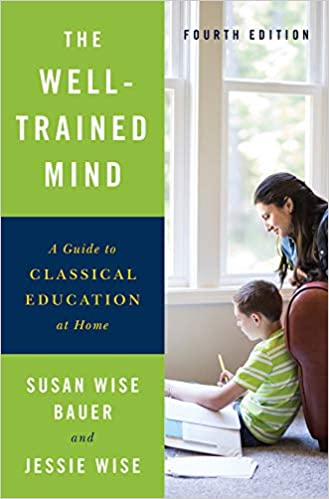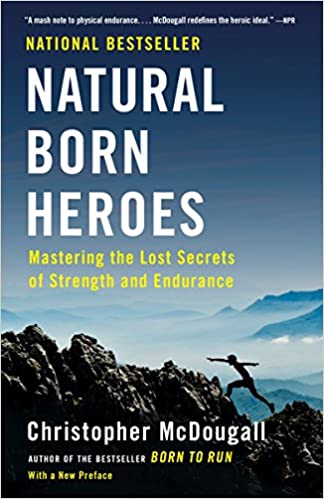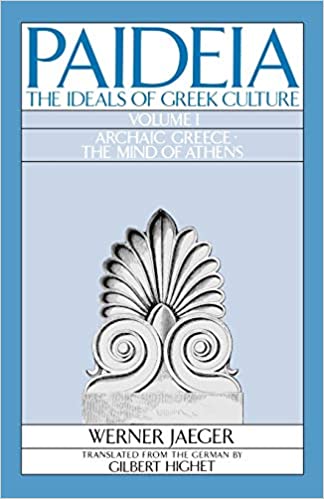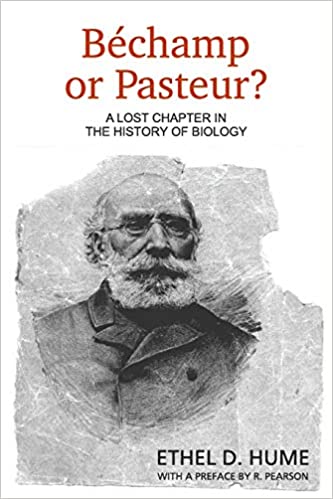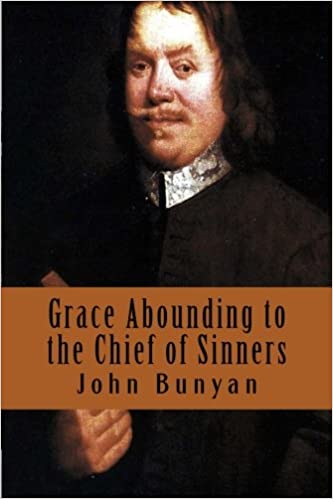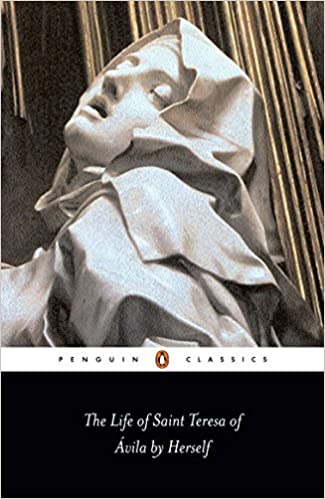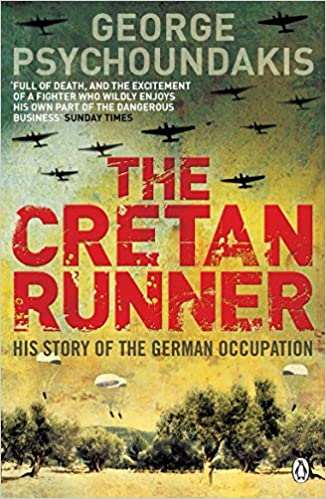Confessions
From Amazon:
"Augustine's fourth-century spiritual autobiography not only is a major document in the history of Christianity, a classic of Roman Africa, and the unchallenged model through the ages for the autobiographical record of the journey to self-knowledge, it also marks a vital moment in the history of Western culture.
As Augustine explains how, when, and why he became the man he is, he probes the great themes that others were to explore after himCfaith, time, truth, identity, and self-understanding--with a richness of detail unmatched in ancient literature. Dense with vivid portrayals of friends, family, colleagues, and enemies, The Confessions chronicles the passage from a life of sensuality and superstition to a genuine spiritual awakening--in a powerful narrative of one man's inner education that continues to shape the way we think and act today."
More info →The Well-Trained Mind: A Guide to Classical Education at Home
From Amazon:
"The Well-Trained Mind will instruct you, step by step, on how to give your child an academically rigorous, comprehensive education from preschool through high school―one that will train him or her to read, to think, to understand, to be well-rounded and curious about learning. Veteran home educators Susan Wise Bauer and Jessie Wise outline the classical pattern of education called the trivium, which organizes learning around the maturing capacity of the child’s mind and comprises three stages: the elementary school “grammar stage,” when the building blocks of information are absorbed through memorization and rules; the middle school “logic stage,” in which the student begins to think more analytically; and the high-school “rhetoric stage,” where the student learns to write and speak with force and originality. Using this theory as your model, you’ll be able to instruct your child―whether full-time or as a supplement to classroom education―in all levels of reading, writing, history, geography, mathematics, science, foreign languages, rhetoric, logic, art, and music, regardless of your own aptitude in those subjects."
More info →Natural Born Heroes: Mastering the Lost Secrets of Strength and Endurance
Christopher McDougall’s journey begins with a story of remarkable athletic prowess: On the treacherous mountains of Crete, a motley band of World War II Resistance fighters—an artist, a shepherd, and a poet—abducted a German commander from the heart of the Axis occupation. To understand how, McDougall retraces their steps across the island that birthed Herakles and Odysseus, and discovers ancient techniques for endurance, sustenance, and natural movement that have been preserved in unique communities around the world.
His search takes us scrambling over rooftops with a Parkour crew in London, foraging for greens with a ballerina in Brooklyn, tossing heavy pieces of driftwood on a Brazilian beach with the creator of MovNat—and, finally, to our own backyards. Natural Born Heroes will inspire readers to unleash the extraordinary potential of the human body and climb, swim, skip, throw, and jump their way to heroic feats.
More info →Paideia: The Ideals of Greek Culture: Volume I: Archaic Greece: The Mind of Athens
Werner Jaeger's classic three-volume work, originally published in 1939, is now available in paperback. Paideia, the shaping of Greek character through a union of civilization, tradition, literature, and philosophy is the basis for Jaeger's evaluation of Hellenic culture.
Volume I describes the foundation, growth, and crisis of Greek culture during the archaic and classical epochs, ending with the collapse of the Athenian empire. The second and third volumes of the work deal with the intellectual history of ancient Greece in the Age of Plato, the 4th century
B.C.--the age in which Greece lost everything that is valued in this world--state, power, liberty--but still clung to the concept of paideia. As its last great poet, Menander summarized the primary role of this ideal in Greek culture when he said: "The possession which no one can take away from man is paideia."
Bechamp or Pasteur?: A Lost Chapter in the History of Biology
R. Pearson's Pasteur, Plagiarist, Imposter, originally published in 1942, serves as the introduction. It details some of the reasons for the rancorous relationship between Louis Pasteur and Antoine Béchamp. Pearson points out many of the problems in Pasteur's work, and provides details, statistics and evidence to support his case. Some of the frauds which were eventually admitted by the Pasteur Institute are mentioned here.
Ethel Hume's Béchamp or Pasteur?, originally published in 1923, is the larger work, and provides the main body of evidence, in three parts:
1. The Mystery of Fermentation
2. The Microzymas
3. The Cult of the Microbe
This book is a compelling and thorough account of Pasteur's plagiarism and scientific fraud. It contains the evidence of the false grounds on which the germ theory of disease was elevated to its current status as a dogma, and beyond question. In this forgotten chapter of the history of biology and medicine, we are shown how powerful interests and agendas have prevailed over genuine science. Here are strong reminders of the powers which control the pharmaceutical and regulatory industries to this day.
More info →The Life of Saint Teresa of Avila by Herself
Born in the Castilian town of Avila in 1515, Teresa entered the Carmelite convent of the Incarnation when she was twenty-one. Tormented by illness, doubts and self-recrimination, she gradually came to recognize the power of prayer and contemplation—her spiritual enlightenment was intensified by many visions and mystical experiences, including the piercing of her heart by a spear of divine love. She went on to found seventeen Carmelite monasteries throughout Spain. Teresa always denied her own saintliness, however, saying in a letter: "There is no suggestion of that nonsense about my supposed sanctity." This frank account is one of the great stories of a religious life and a literary masterpiece—after Don Quixote, it is Spain's most widely read prose classic.
For more than seventy years, Penguin has been the leading publisher of classic literature in the English-speaking world. With more than 1,700 titles, Penguin Classics represents a global bookshelf of the best works throughout history and across genres and disciplines. Readers trust the series to provide authoritative texts enhanced by introductions and notes by distinguished scholars and contemporary authors, as well as up-to-date translations by award-winning translators.
More info →The Cretan Runner: His Story of the German Occupation
George Psychoundakis was a young shepherd boy who knew the island of Crete intimately when the Nazis invaded by air in 1941. He immediately joined the resistance and took on the crucial job of war-time runner. It was not only the toughest but the most dangerous job of all. It involved immense journeys carrying vital messages, smuggling arms and explosives and guiding Allied soldiers, agents and commandos through heavily garrisoned territory. And George did not escape capture and torture on his many forays. This brilliant account of George's activities across mountainous terrain, come blazing summer or freezing winter, is a gripping story of bravery against impossible odds.
More info →

